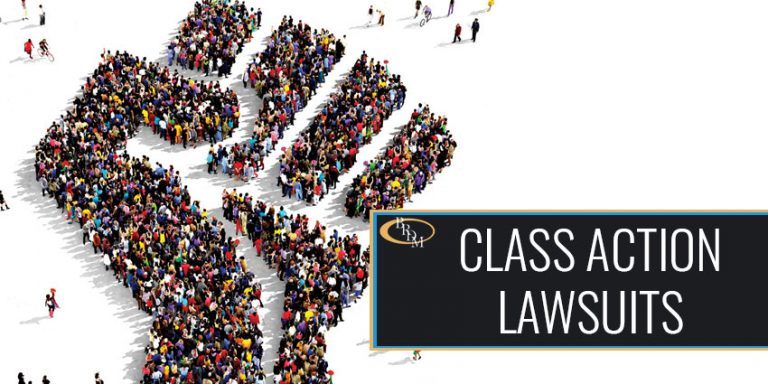Debunking Class Activity Claims: A Closer Take A Look At Legal Proceedings
Course action claims can be challenging and intricate, frequently shrouded in a shroud of secret for those unfamiliar with the legal procedures entailed. From comprehending the criteria for course activity qualification to the duty of course reps, and from the procedure of course qualification to the resolution of these lawsuits, we will decipher the intricacies and dropped light on the inner operations of this lawful mechanism.
Comprehending Class Activity Suits
Understanding Course Activity Legal action calls for a comprehensive assessment of the legal procedures entailed in cumulative lawsuits. Class action lawsuits are a sort of legal action where a team of people with similar claims or grievances collaborate to start a claim against a common offender. This kind of lawsuits enables individuals with limited sources to collectively seek justice, as it combines the toughness of numerous private claims right into a solitary legal action.
The procedure starts with the recognition of a lead plaintiff or class representative who submits the preliminary issue on behalf of the entire class. The court then establishes whether the situation meets the needs for class certification, which consist of commonness, numerosity, typicality, and adequacy of depiction. If certified, the court alerts prospective course members, providing a possibility to opt-out if they want to seek their insurance claims individually.
As soon as the class is accredited, the litigation continues through different stages, consisting of exploration, movement practice, and, if essential, trial. The end result of the claim can result in a judgment or a settlement, which is binding on all course members unless they pick to opt-out. Class activity suits can incorporate a large range of lawful issues, such as consumer defense, safeties fraud, work discrimination, and ecological harm.
Recognizing the nuances of course action legal actions is important for both complainants and defendants associated with cumulative lawsuits. It requires a comprehensive understanding of the lawful demands for qualification, the rights and responsibilities of class members, and the possible advantages and dangers associated with seeking or safeguarding versus class action insurance claims.
Identifying Class Action Eligibility
To figure out whether a legal action certifies as a course activity lawsuit, particular criteria need to be fulfilled. These criteria are developed to ensure that the instance can effectively represent the rate of interests of a huge team of people that have experienced similar damage or have been influenced by the very same problem. The key consider recognizing course activity qualification is the presence of a common concern or concern that influences all prospective class members.
First of all, a course action suit calls for numerosity, which implies there need to be a significant variety of possible course participants entailed. This guarantees that a course action is an effective means to deal with the cases of a large group of people, instead of having each person submit an individual lawsuit.
Secondly, there must be commonness among the insurance claims of the potential course members. This implies that there need to be an usual inquiry of legislation or truth that is central to the case. A course action may not be suitable. if each prospective course member's insurance claim is one-of-a-kind and unassociated to the others.

The Duty of Course Rep
Course agents play an essential role in class activity lawsuits by standing for the rate of interests of the entire class. These people are selected from within the course to work as the public face of the legal action and are in charge of making decisions in behalf of all class members. The function of class agents entails various responsibilities and duties throughout the legal proceedings.
Among the key obligations of class representatives is to offer details and support to their fellow course participants. They serve as a point of contact and interaction between the class participants and the lawyers representing them. This consists of maintaining the course participants notified about crucial updates, addressing their inquiries, and addressing try this site any type of advice issues they may have.
Class representatives additionally have the task to actively take part in the litigation procedure (Archer-Daniels-Midland class action lawsuit). This involves functioning very closely with the lawyers to develop lawful methods, collecting evidence, and supplying testament if needed. They should be actively associated with all aspects of the case to ensure that the most effective interests of the whole class are represented
Furthermore, class agents are in charge of authorizing negotiations or other resolutions reached in the legal action. They must meticulously evaluate the terms of the negotiation and decide that remains in the most effective interest of the entire class. This decision-making procedure requires cautious consideration and examination with the class participants.
The Refine of Course Qualification
The procedure of accrediting a course in a course activity lawsuit involves a thorough analysis of details standards to identify if the situation satisfies the required demands for class accreditation. Class certification is an important action in the lawsuits procedure as it figures out whether a lawsuit can continue as a course activity, permitting a large group of people with comparable insurance claims to be stood for jointly by one or a couple of individuals.
To get class certification, the plaintiff must demonstrate that the suggested class satisfies particular prerequisites. These prerequisites normally consist of numerosity, commonness, typicality, and competence of representation. Numerosity needs that the course is so big that joinder of all members is unwise. Commonness visit this site right here requires that there are questions of law or fact common to the course participants. Typicality calls for that the claims or defenses of the course reps are regular of those of the course. Competence of depiction makes certain that the course representatives will fairly and sufficiently secure the passions of the class.
The court will look at these standards and the complainant's proof to determine if the proposed class meets the required needs. The court may additionally think about other aspects, such as whether a class action is the superior technique to fix the disagreement and whether the class is completely cohesive.

As soon as the court grants class qualification, the suit can continue as a course activity, enabling the plaintiffs to collectively look for relief and possibly obtain a judgment or settlement that profits the entire class.
Managing Class Activity Suits
When course certification has been given, the following action in dealing with a class activity claim is to navigate the process of litigation or negotiation arrangements. Lawsuits refers to the legal process in court, where the plaintiff's lawyer offers evidence and arguments to support their cases, and the offender's lawyer counters with their very own proof and disagreements. This procedure can entail various stages, such as pretrial movements, discovery, and test.
On the other hand, settlement arrangements include discussions in between the celebrations to reach a mutually appropriate resolution without going to trial. Future FinTech class action lawsuit. Negotiation supplies may be made at any type of phase of the lawsuits process, and if both parties agree, a negotiation arrangement is reached. This agreement generally outlines the terms of the settlement, including any kind of financial compensation, injunctive alleviation, or various other remedies. Once the negotiation is settled, it is presented to the court for authorization.
Final Thought
Finally, course action claims play a critical duty in providing justice and compensation to huge groups of individuals who have been hurt by the exact same entity. By designating and certifying a class class representatives, the legal process becomes much more effective and accessible for the complainants. Resolving these suits can be a complex and extensive procedure, yet it is important in holding corporations accountable for their activities and guaranteeing fair outcomes for all affected parties.
From recognizing the requirements for class action qualification to the duty of class representatives, and from the procedure of course accreditation to the resolution of these suits, we will unravel the details and dropped light on the inner operations of this lawful mechanism. The essential variable in recognizing class activity qualification is the presence of a common inquiry or problem that impacts all prospective class members.
If each prospective course participant's insurance claim is special and unassociated to the others, a course action may not be suitable.
Class reps play a vital function in class action legal actions by representing the rate of interests of the whole class.When class accreditation has actually been approved, the next action in fixing a course action suit is to navigate the procedure of lawsuits or negotiation negotiations.